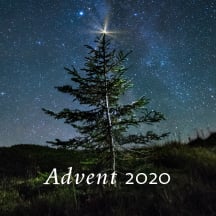 Luke’s Gospel reports that the scribes and Pharisees accused Jesus of blasphemy for his words “your sins are forgiven.” Why did this so arouse the Jewish leaders? What does it mean to have our sins forgiven?
Luke’s Gospel reports that the scribes and Pharisees accused Jesus of blasphemy for his words “your sins are forgiven.” Why did this so arouse the Jewish leaders? What does it mean to have our sins forgiven?
What is a sin, and how can it be forgiven? We are told that sin is “an immoral act considered to be a transgression against divine law.” We recognize such classic sins as murder, theft, lying, adultery, substance abuse and harming others. Most believe that only God can forgive sins; thus, the charge of blasphemy brought against Jesus.
We dealt with less egregious sins in our youth through the Saturday afternoon ritual of Confession, absolution and penance (5 Our Fathers and 5 Hail Marys and a good Act of Contrition). My last, and most vivid, memory of this Sacrament was, in college in 1962, viewing the very lengthy lines at the Holy Cross Chapel’s Confessionals following President Kennedy’s Cuban Missile Crisis speech, which raised the fear of nuclear war.
This Sacrament appears to have faded from twenty-first-century Catholicism. We are now encouraged to find a quiet time and place to reflect, to ask God for help dealing with our failings, misdeeds and mistakes, and to give us the strength and commitment to do better.
These conversations with the Lord involve what we have done wrong, our sins of commission. But what about our sins of omission, when we have not done what we should have? John Kennedy gave us this guidance: “Dante once said that the hottest places in hell are reserved for those who, in periods of moral crisis, maintain their neutrality.”
Where are we in these periods of crisis? What do we do when we learn of injustice, discrimination, intolerance, racism, poverty, lack of education, the absence of health care and other crimes against our fellow human beings? Do we have a responsibility to do our part to deal with these social evils? Is it sinful to ignore the needs of our fellow human beings?
We might allege that we don’t know where to start, faced with innumerable needs and injustices of fellow Americans, as well as human beings throughout the world. The 35th President’s brother, Robert Kennedy, responded to this concern:
“Let no one be discouraged by the belief that there is nothing that one person can do against the enormous array of the world’s ills, misery, ignorance and violence. Few will have the greatness to bend history, but each of us can work to change a small portion of events. And in the total of all these acts, will be written the history of a generation.”



